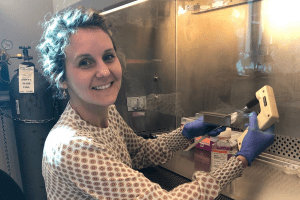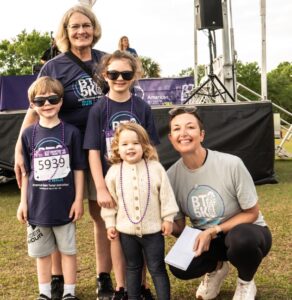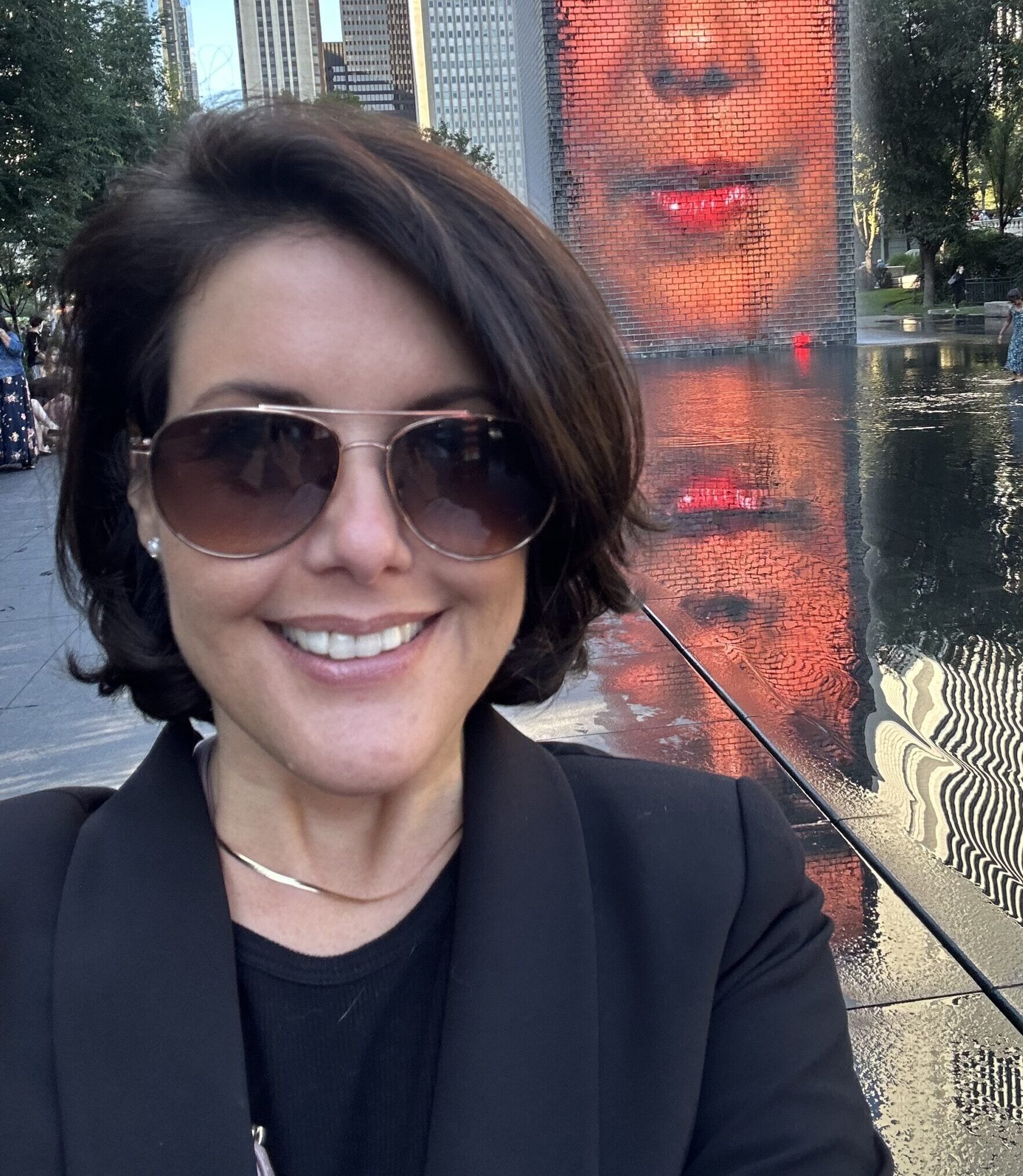
What’s it like to attend the nation’s largest brain tumor conference for patients, caregivers and loved ones?
We asked Beth Kassab, a member of the ABTA Volunteer Leadership Advisory Council (VLAC), veteran journalist, brain tumor survivor (and former caregiver) to share her top takeaways from the 2023 National Conference, held Sept. 8-9 in Chicago and online.
First, a confession: I signed up to volunteer at the ABTA’s National Conference in September as this incredible organization celebrates its 50th year. But I wasn’t sure what to expect or if I would even enjoy it.
On the morning of the first day of the event in Chicago, I felt a pit in my stomach. On many days, I’m exhausted just by the thought of anything to do with brain tumors.
Did I really volunteer to fly 1,000 miles from my home in Central Florida to spend two full days with patients, caregivers, researchers and clinicians focused on one of the scariest maladies known to man? The very one that stole my husband, my kids’ dad and brought my own frightening diagnosis?
Yep, I did. And I’d do it again.
My husband died at age 46 from a Grade 4 Astrocytoma in 2022 and I spent the four and a half years of his illness learning everything I could about this intractable tumor that upended every little corner of our family’s lives. And just one week before the start of the conference, I found myself in my neuro-oncologist’s office to learn the results of the latest MRI of my own brain – a check-up on the meningioma (a very different and benign primary brain tumor) that was diagnosed and treated five years ago (all is well!).
So how did I leave this conference about brain tumors so certain I would be back next year?
It turns out I needed this. And so did so many others who I met. There’s a reason why this conference drew more than 1,400 attendees from across the country to Chicago and online.
Here are some highlights (in no particular order) from the conference to help explain what I mean:
1. Meeting Sally Walker
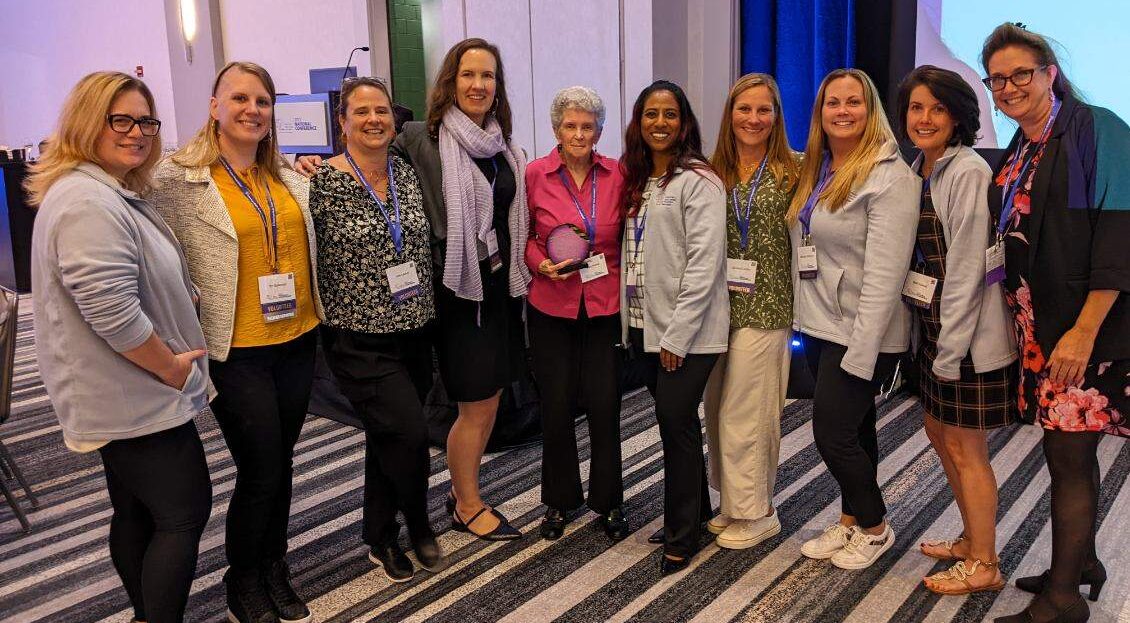
So many of us want to find a way to carry on our loved one’s legacy. Sally Walker exemplifies what that means through her dedication and an enviable amount of energy.
At age 82, Walker received the 2023 Juliana Schafer Spirit of Hope Award. She is the key driver behind the more than $200,000 she helped raise over two decades through the ABTA’s Chicago Breakthrough for Brain Tumors 5k (BT5K), in memory of her daughter, Kristi, who died in 2011 at age 37. For a lot of us, a conference would have been enough for one weekend. But Walker flew home to Ohio and barely unpacked before baking six dozen shortbread cookies for a church function (she says she loves to bake and also bakes regularly for Hospice House).
Walker shuns attention and says she has faithfully carried on her daughter’s BT5K team each year simply “because it’s what Kristi would do.” When she accepted the award in a room full of patients, advocates, doctors and volunteers, she quietly placed a framed photo of Kristi on the podium before she spoke.
“Kristi wasn’t perfect, but she sure dealt with adversity very well,” Walker said. “I think she made me stronger.” And Walker doesn’t plan to slow down any time soon. She said she will fundraise for research and walk in the BT5K for as long as she can. “I’m hoping that someday we’ll find not just a cure, but find out what is causing brain tumors,” she said.
2. Doctors in the wild
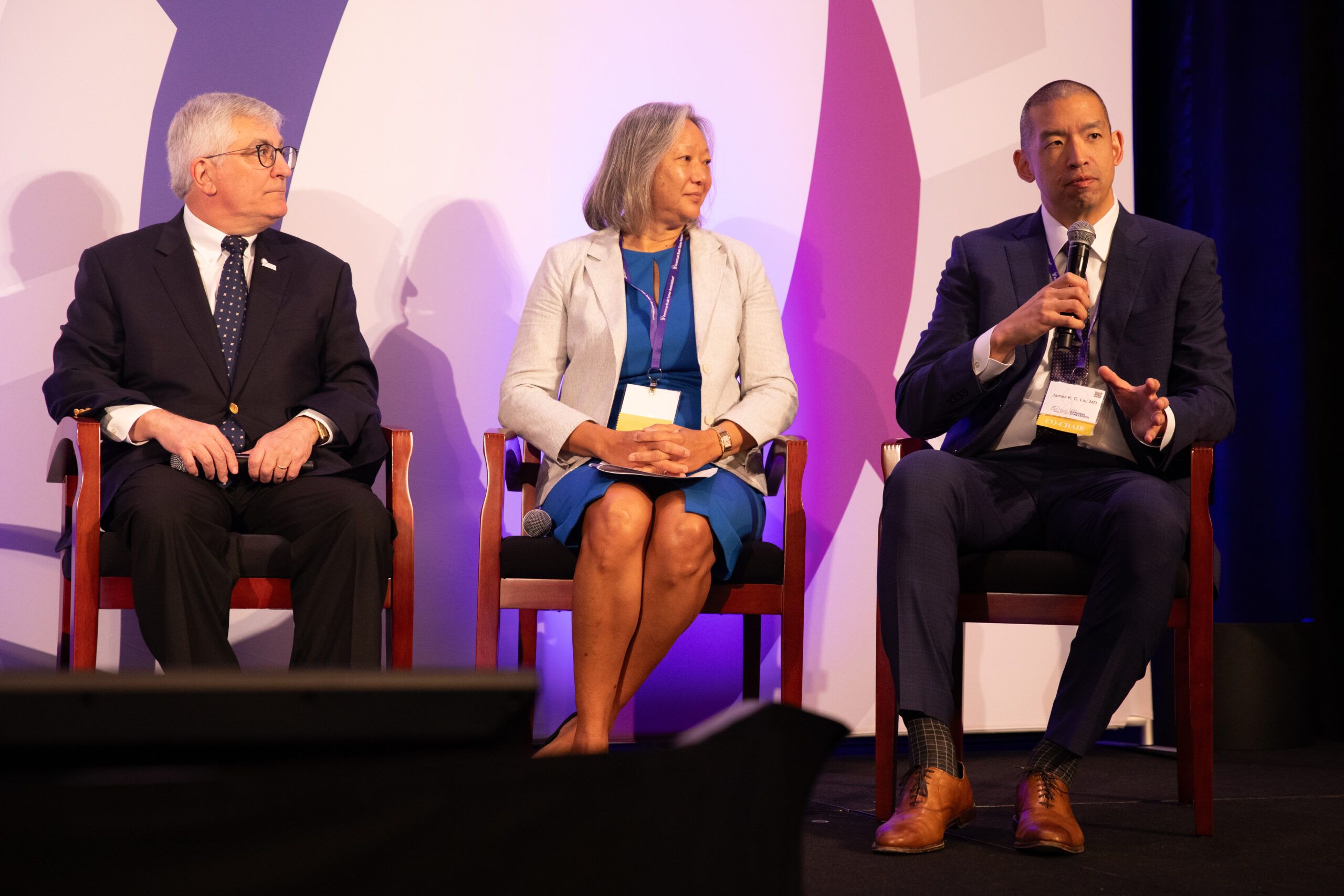
Many patients and their families only see their medical teams under the fluorescent lights of a clinic or hospital room. Visits can feel rushed or heavy with big decisions about the next surgery or treatment. The ABTA conference provides a chance for families to pull up a chair and a cup of coffee with well-known neurosurgeons, oncologists and researchers and discover something important: They are just people, too.
Dr. Susan M. Chang, a neuro-oncologist and professor at the University of California, San Francisco and Dr. James K. C. Liu, a neurosurgeon at Moffitt Cancer Center in Tampa, Florida, co-chaired this year’s conference and reflected on that dynamic. Liu said it’s meaningful for him to see in action the impact surgery can have on a patient far outside the operating room.
“We get a very limited exposure to our patients,” Liu said. “Here we see all of the different things patients deal with outside the clinic and how challenging it can be and how well they deal with it.”
Meanwhile, Dr. Chang said the conference underscores the need for opportunities for patients to interact. “When you come to something like this, it brings home that need for a sense of community and belonging,” she said. “It really strikes you how important it is that we have resources for everyone. There are many patients who have been through this journey, but the journey is not done. Now they are giving back.”
3. Real Talk
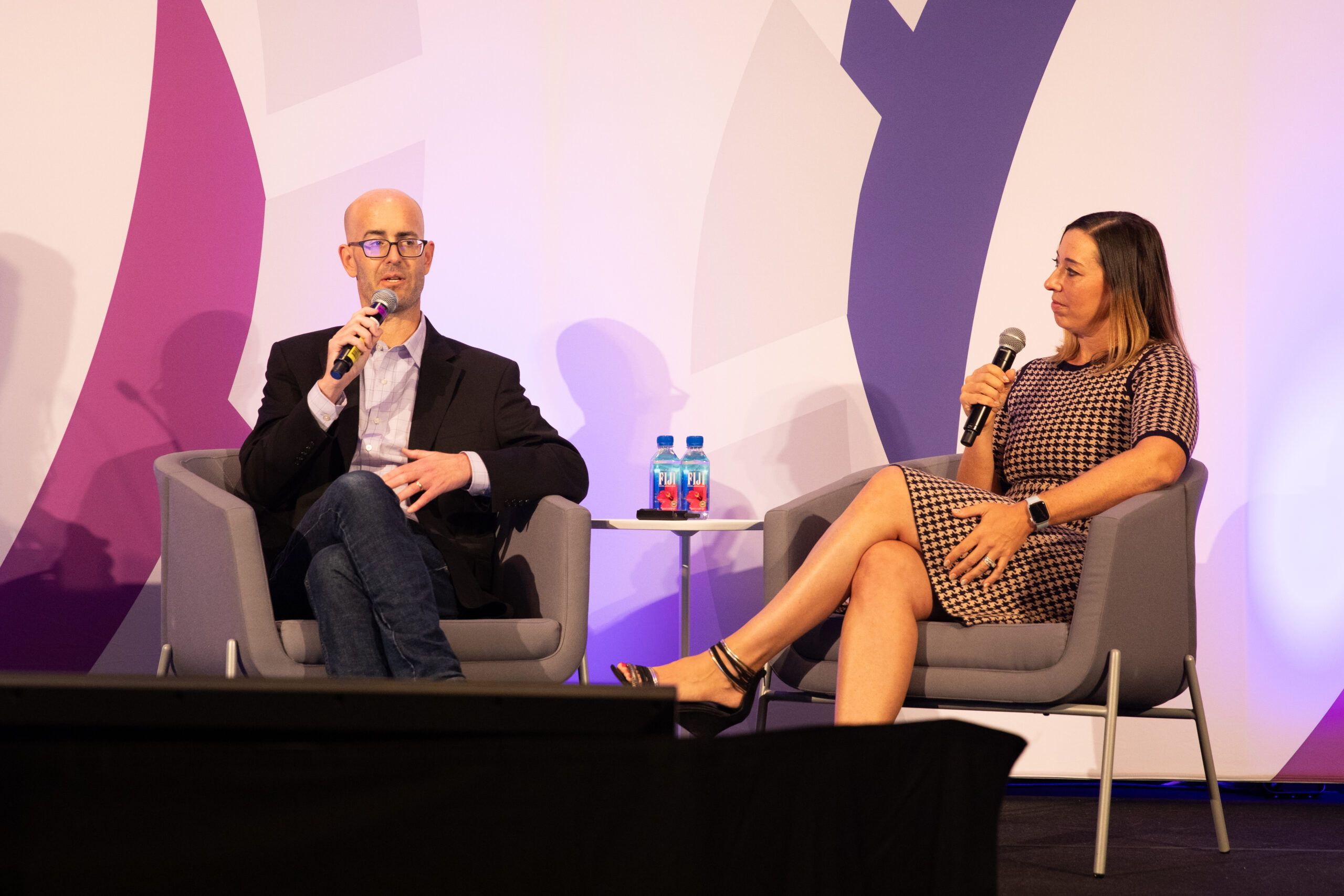
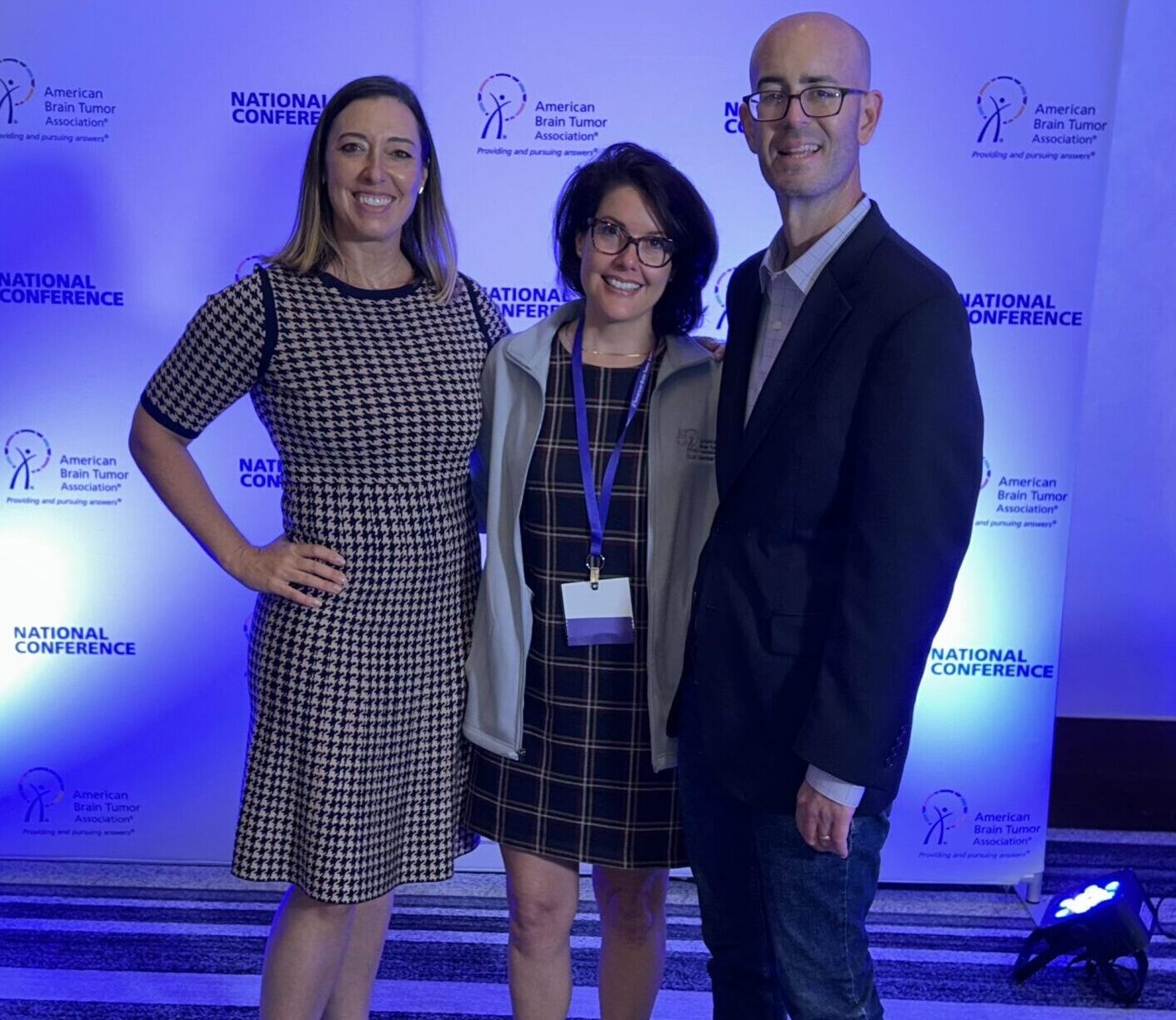
Radio personality and podcaster Bryan Bishop crushed not only his original prognosis, but the tired platitudes that are often thrown at cancer patients. “A lot of people tell you, ‘Live every day as though it’s your last,'” he said. “Do you have any idea how exhausting that would be?!” Bishop’s keynote address, which he tag-teamed with wife, Christie, provided the kind of humor and authenticity that only people who truly know this disease could deliver.
Bryan was diagnosed with an inoperable brain stem glioma 14 years ago as he and Christie were planning their wedding. Instead of tired clichés, they imparted truths that can be hard to talk about, such as the shift in a relationship from partner to patient.
Intimacy can take on new meaning, Christie noted. Like the time she ran around town to find the exact foods Bryan wanted – from Jamba Juice to sushi. “I went to four different places and I got that,” she said. “And that’s intimacy and you have to redefine it.”
These were just a few of my highlights. I could keep writing, but you'll have to discover it for yourself next year! 🙂 Click here to sign up for 2024 conference announcements.
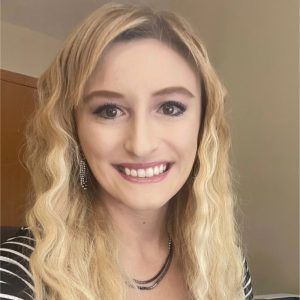
Jessie Schlacks
Jessie is Managing Editor of the bi-monthly e-newsletter MindMatters. Submit story ideas or questions to jschlacks@abta.org.



